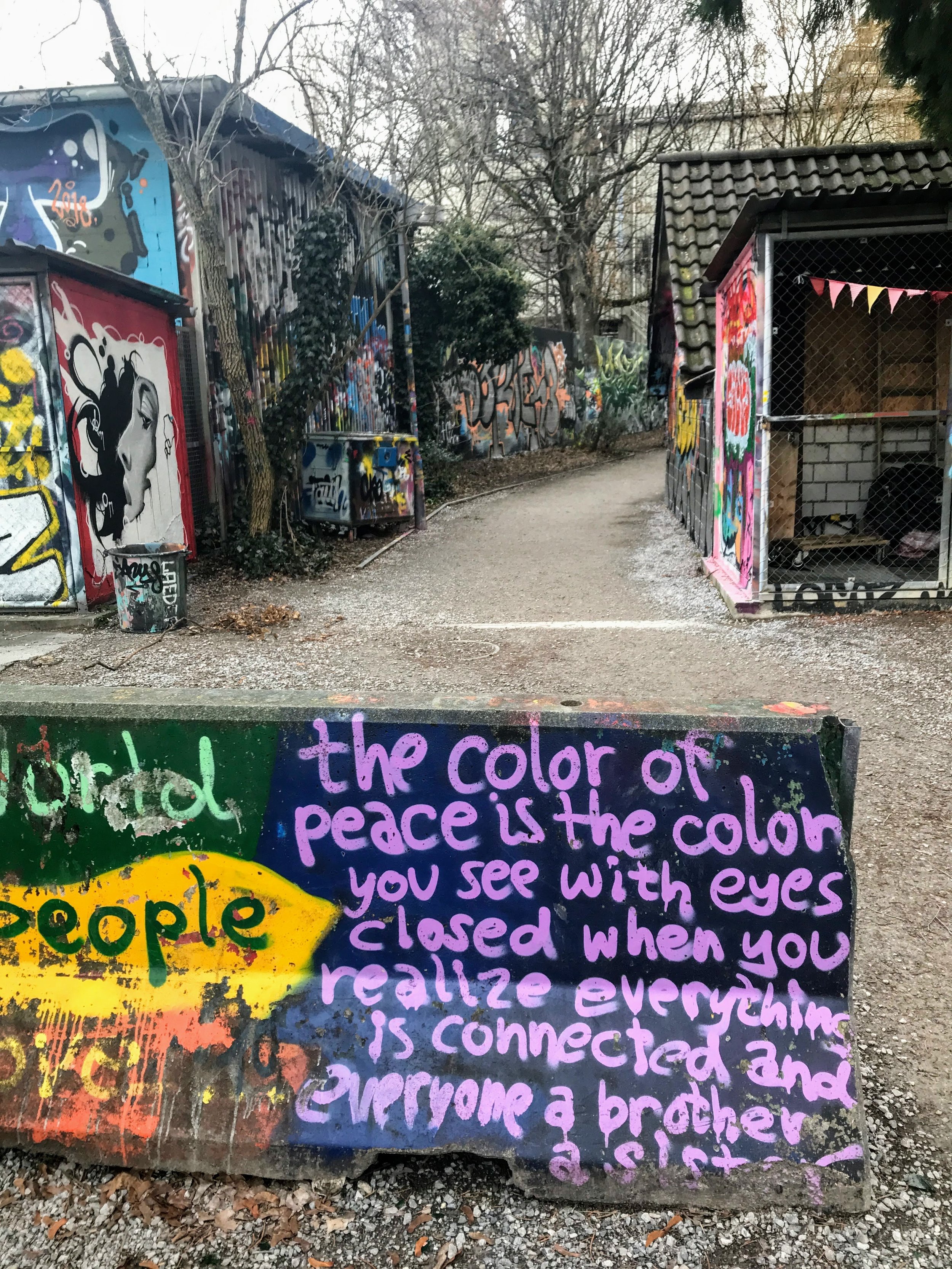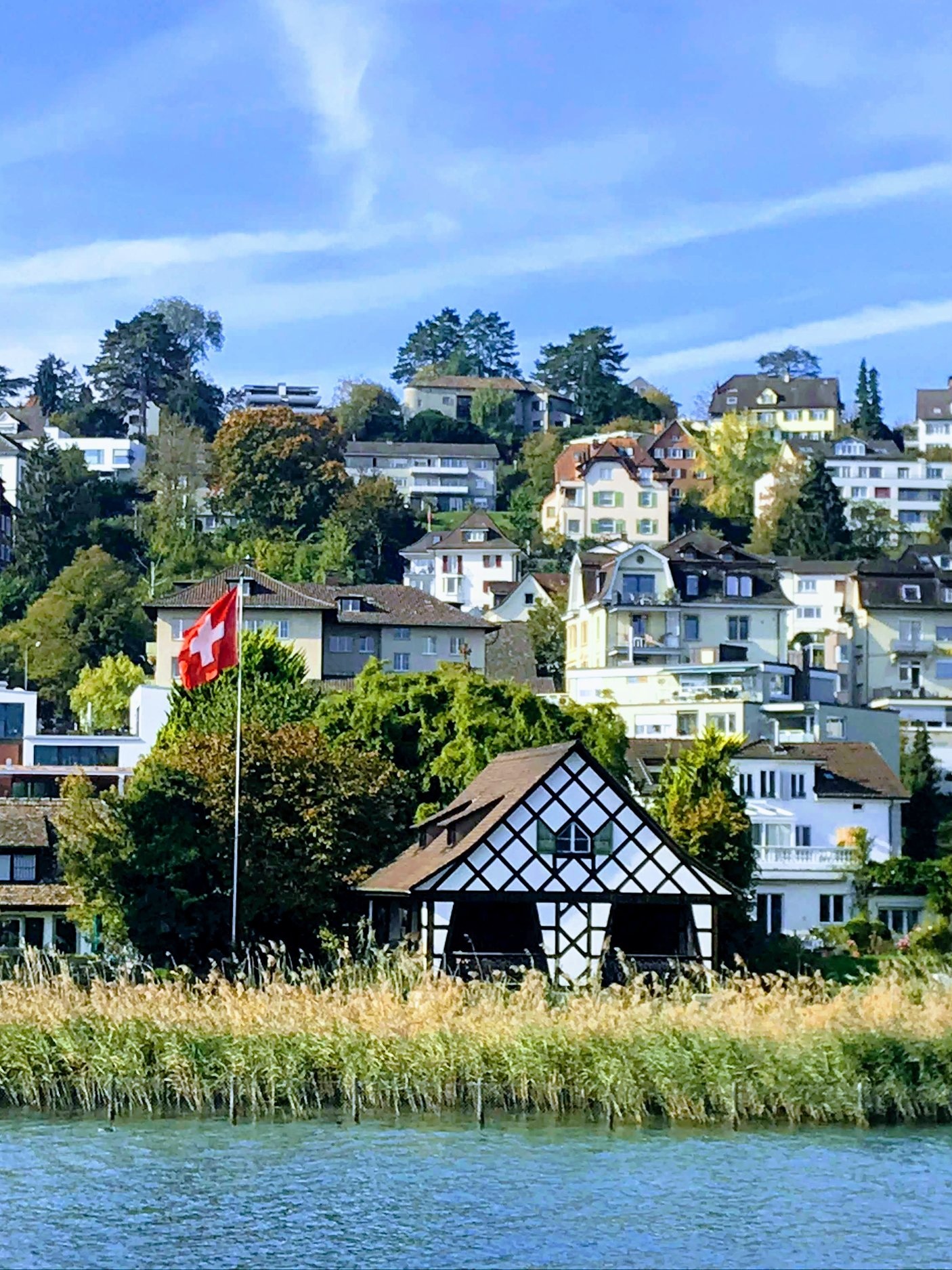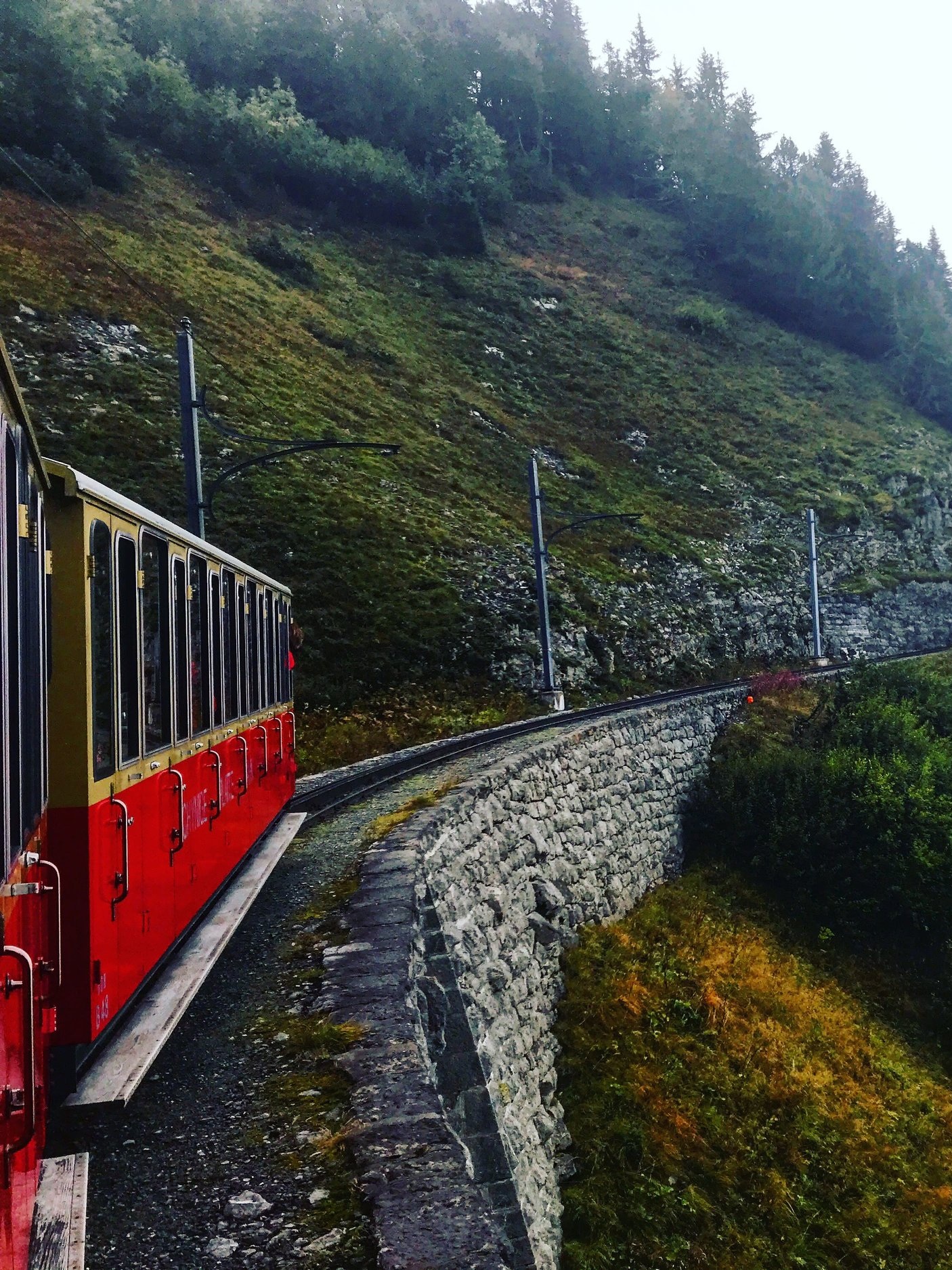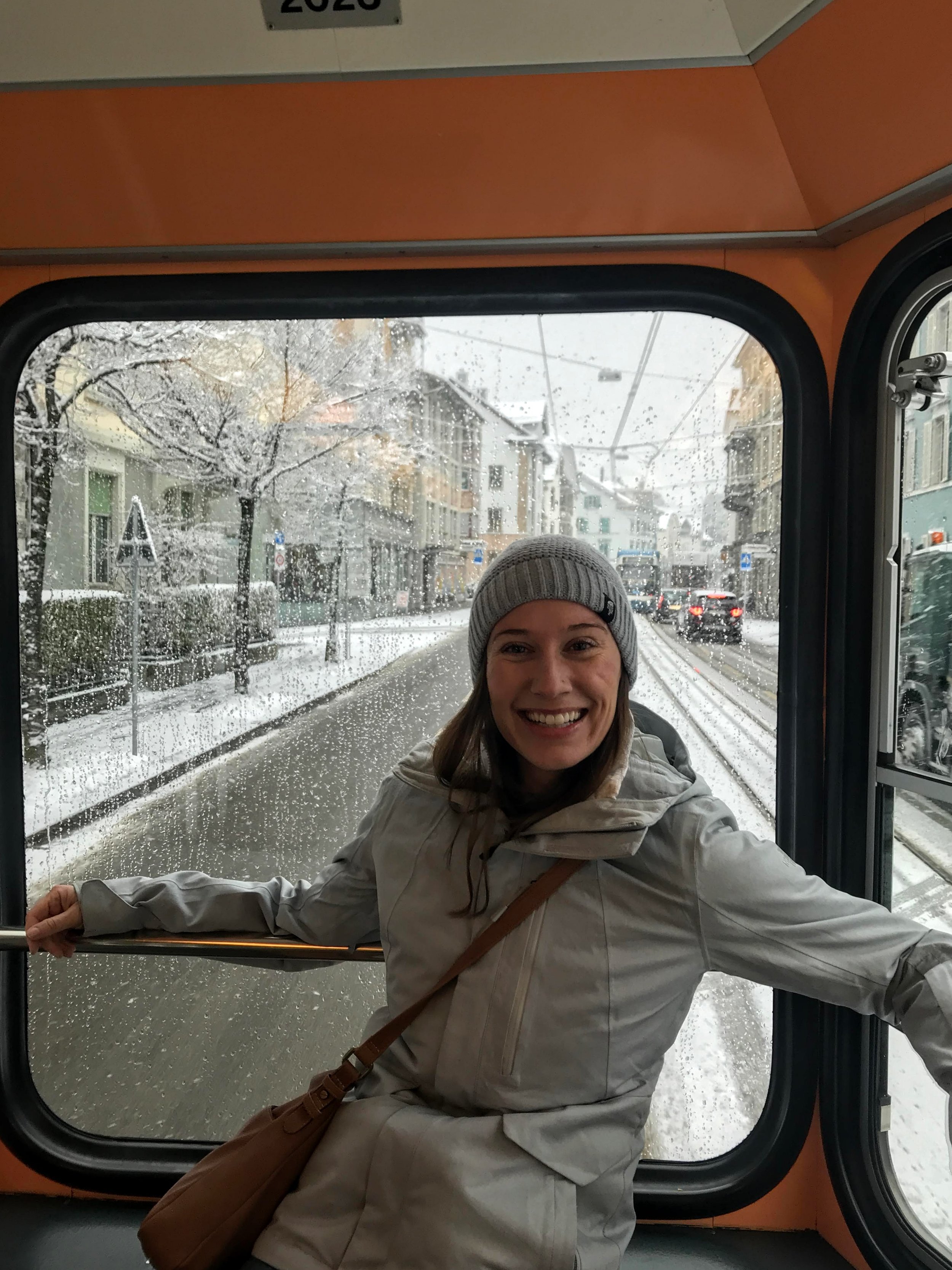5 Things the World Can Learn from Switzerland
A bit unexpectedly, I’ve fallen in love with the Swiss way of life. I say unexpectedly because while I knew there would be things I would enjoy (mountains and cheese and chocolate), I didn’t know much else about Swiss lifestyle or culture, besides the stereotypes of punctuality and rules. As an expat from California, I didn’t really know what to expect.
The Swiss do plenty of things well, but in the past 8 months as a Zurich resident, I’ve noticed five stand-out qualities to highlight. These are all my own personal opinions and observations (although for some, like education and gun control, the stats also agree with me. And you can’t argue with stats!). And, none of these things mean that there isn’t lots that I love, and miss, about all the other cities and countries that I have been lucky to call home. But I have to give credit where credit is due, so here are five things the world can learn from this little mountain land.
1. A vocational educational system
Switzerland has what is called a vocational education and training system (VET), where students can combine learning in school with learning in a workplace setting. I first learned this about this during my Zurich integration course and was immediately fascinated. Basically, by the U.S. equivalent of 9th grade, Swiss students can choose one of two next steps: the academia route or the vocational route.
The academia route is more or less comparable to traditional U.S. high school, with the main goal to continue on to university studies. A major difference to note, though, is that the Swiss university system is not meant for broad general or liberal arts education - it is much more specialized, focused on a narrow band of professions. The idea is that the students’ secondary school education is so strong, they can proceed directly to professional studies.
But it is the second option that makes Switzerland a gold standard: the vocational route. Students choosing this path can select from a huge range of career opportunities: high-tech, IT, business, finance, health and human services, social care, pre-engineering, traditional trades and crafts, and hundreds more. A third of companies in Switzerland have apprenticeship VET programs set up for 16-19 year olds, and these students rotate between practical training at a company and theoretical classes (vocational and general education) at school throughout the three or four year “high school” period. Students are required to apply and interview for these apprenticeships, which means they are learning these skills at 15 - I didn’t know how to properly interview or put together a CV until after I graduated college.
Their learning is hands-on and contextualized, the students are given real-world responsibility, and most importantly, there is zero stigma attached.
At the end, they have a nationally recognized qualification that is portable, and the opportunity to move directly into full-time employment or to continue to higher education. Their learning is hands-on and contextualized, the students are given real-world responsibility, and most importantly, there is zero stigma attached. Not to mention, it’s an opportunity to teach those equally important “soft skills:” collaboration, communication, problem-solving, empathy, self-direction, and so on. Oh, and these teenaged student apprentices are paid an average monthly stipend ranging from $600-$1200. It’s no wonder that 70% of the Swiss youth choose to participate in the vocational model.
I went to college myself, and I am a firm believer that a college education should be accessible and affordable for anyone who wants to go. But I’m coming from the United States, where college is so often the only option for anyone who wants a “socially-acceptable,” high-paying job, and people go into massive student loan debt because of it (collective debt total is at $1.5 trillion, which yes, I know, is a whole other issue in of itself). Wouldn’t it be great if there was another option? That public schooling could prepare adolescents to seamlessly transition into the working world by 18, and that it was not only a socially acceptable, but a respected, choice? A choice good for society and students alike? I think so.
2. A standard of high-quality apartments
One of my favorite things to do every morning is to walk through our apartment and open every window to let the fresh air in. I do this every morning, rain or shine, summer or winter. In fact, it’s part of our rental agreement - we are required to ventilate the apartment for 5-10 minutes, a couple times a day. And that’s because our apartment, like most Swiss apartments, is built so that it is completely sealed from the elements. Double-paned glass, thick concrete walls (it’s a pain for hanging art but great for sound-proofing), and doors that completely shut, without those small little gaps between the floor and door frames, are all standard Swiss apartment hallmarks. No air is getting in without permission.
I throw around the term “life-changing” a lot in this blog, most recently when I referred to discovering pesto-infused Gouda cheese in Amsterdam, but I can say it this time with zero hyperbole. The high quality of Swiss apartments has been life-changing. Other friends we’ve met who live here concur, Swiss and expat alike.
In San Francisco, more often than not it was colder inside our apartment than it was outside. The walls were so thin I could be up to date on the daily dramas and routines of my neighbors. Most windows are single-pane, and I could feel the wind standing next to a closed window inside. Speaking of windows, our last place only had one in the entire apartment, and it didn’t even open. That could be why I love opening windows so much these days. Those classic SF Victorians and Edwardians are full of character and beautiful pieces of architecture, but man, are they creaky and drafty.
From what I’ve seen, Swiss apartments are solidly built, beautifully maintained and required to be renovated on a realistic timescale (I think every 10-15 years). I find this to be reflective of Swiss values and culture: they maintain and take care of things, they approach things with common-sense logic, and understand the need to update when the time is right. Maybe this is why Switzerland is a land of renters!
It’s not perfect apartment living. The walls are concrete, but the floors are not, meaning we have to deal with the - how shall I phrase it - eccentricities of our upstairs neighbor and his daily three-hour “singing” practice. Newer apartments, although extremely functional, are not exactly the most aesthetically pleasing buildings in the land. And I’m legitimately anxious about the dreaded “apartment handover.” The level of cleanliness expected and attention to detail needed is infamous in the move-out process. Some people pay substantial sums (I’m talking thousands of francs) for a professional cleaning service so that they pass the inspection.
But on the flip side, we moved in to a PRISTINE apartment that is cool in the summer, warm in the winter, and I’ll take that over single-paned windows any day. It’s not perfect, but honestly, it’s darn near close.
3. A culture of trust
One day, Raunaq called me in a panic. He was biking his (10-minute!) commute to work, and at some point, his wallet fell out of his back pocket. It had everything - our credit cards, our debit cards, drivers license, travel passes, cash, and his Swiss visa. He realized the minute he arrived work, and had already scoured the bike route twice before he called - it wasn’t there. He’d have to cancel his work trip to the states that night, we’d need to cancel all our cards, and I was mentally thinking: “We. are. screwed. And Raunaq, get a wallet that fits in your pocket!”
Raunaq was en route to the police station while we were fretting on the phone, and when he got there, was immediately directed to the “Fundbüro” (translation: the lost and found office). Lo and behold, twenty minutes after losing his wallet, someone had already returned it perfectly intact. This means that person found it, stopped whatever they were doing that morning, and immediately took it to the Fundbüro. That’s not just a Good Samaritan - that’s Switzerland. It cost Raunaq 5 francs to get back.
Second story: Walking home from the grocery store, I noticed a small group of children. No, not children - babies, essentially. Four five-year olds, backpacks on, some holding hands, all walking home from school. Immediately, I looked around for an adult. Nope. They were alone. I soon learned that Kindergarten children are expected to go to and from school on foot. After a parent accompanies them so that they know the path, they are encouraged to go alone. It’s an important part of their development, to practice independence and learn about their neighborhood.
It’s one of the most incredible systems of trust that I’ve seen. Community is at the core, and it shows.
It’s really not as crazy as it sounds. Kindergartens are placed in the city so that there is always one within reasonable walking distance, they are taught correct traffic behavior, they all wear these adorable reflective vests. It’s the norm. Ideas of community are developed and ingrained in children at a young age, and honestly, I think that sets the tone for the society as a whole. But it is jarring nonetheless the first time you see a 4-year old, backpack bigger than they are, toddling their merry way down the street.
All this is to say that there is an overwhelming sense of public trust in Switzerland, and I think that is comes from the strong sense of community. You can trust your neighbor, you can trust the government services, stores can trust that customers will pay their invoice (yes, the invoicing system is alive and well) - it’s one of the most incredible systems of public trust that I’ve seen. Sometimes it feels like living in a modern-day Pleasantville, live and in living color. Community is at the core, and it shows.
4. Common. Sense. Gun. Laws.
The Swiss love their guns. Surprised? I was, too. There is an entire holiday dedicated to a sharpshooting competition, Knabenschiessen, where schools and offices shut down for half-day and the whole canton of Zurich goes to watch 13-year olds target shoot with rifles. It’s a hugely popular festival dating back to the 17th century, and until 1991, only boys could participate (UGH.).
Switzerland is second only to the United States among developed countries in gun ownership, with roughly the same proportion of gun-owning households. The Swiss gun culture seems as deeply ingrained in national identity as in the US. But, it only has a quarter of the amount of gun-related deaths and an even smaller fraction of gun-related homicides. The last mass shooting in Switzerland was in 2001. As of February 15, there were 38 mass shootings in the U.S. in 2019 alone.
So what’s different in Switzerland? A lot. Any and all fully automatic weapons are banned for civilians. All buyers for both guns and ammunition need a permit-to-purchase order, issued by the cantonal police, and permits are denied to applicants with criminal records, addiction problems, or a debilitating psychiatric condition. Guns and ammunition must also be stored separately and securely. Any gun owner who wants to carry a weapon for “defense” must pass a test to prove they can properly load, unload, and shoot to get a license. Conceal and carry permits are rare and tough to get.
There’s no way I can list all the regulations here, but it shows that if a country can regulate the lethality and access of guns with common sense, it’s completely possible for that country to have a healthy relationship with firearms without infringing on any “rights.” Say it with me again so that the people in the back can hear.
*I personally do not have a gun nor have any desire to shoot a gun, and don’t understand the need for either - but I do understand the need for common sense gun control legislation.*
5. A world-class public transportation system
Not a day goes by where I don’t appreciate the staggeringly efficient public transportation here. I knew it’d be good. I didn’t know it would be *this* good. I’m certain that you can get everywhere you need to go, in the entirety of the country, literally to the tops of mountains, via public transit. Everything is connected, and in some cases, perfectly timed. Buses will depart a few minutes after a certain train arrives, for example. And if you live in a more remote or rural village, don’t worry - the post office has you covered with the cheery yellow PostBus, which connects towns that wouldn’t have a normal bus route.
One day, we realized took nearly every single form available: tram to train to bus to PostBus to ferry. It was so seamless, we didn’t even realize all the various modes of transit until we got home. All we missed was a gondola ride. It was lovely.
But it’s not only the fact public transportation is extensive and efficient that deserves accolades, it’s the way the ridership is managed. First of all, it’s flexible: If I buy a ticket from Bern to Zurich, for example, I can take any train on that day of travel, and hop on and hop off at any point in between the two cities.
And second, ticket-control runs on a modern-day honor system: You don’t go through any turnstiles, you don’t buy a ticket at the bus entrance, or swipe your transit card. Tickets are pre-purchased, based on the zone you are traveling in, and that ticket may or may not be checked. I’d say our tickets get checked around 50% of the time (Raunaq contests this stat and says it seems high, but I’m sticking by it), more reliably on intercity or regional trains, and rarely on the local city trams and buses.
You just board, take a seat, and get to where you need to go. Right on time.
Of course, if you are caught without a ticket or valid travel pass, the fine is hefty and since this is Switzerland, they will 100% track you down. Being a fare-dodger is decidedly “non-Swiss,” and it will go on your public record (I’m not joking. It goes on your Bad Swiss record for two years). And they are precise: the ticket inspector will look at the time stamp and see exactly when you bought the ticket, so no scrambling for your phone to quickly buy one online if you see an official coming through the doors. They’ll get you. Plus, don’t be a fare-dodger, because they are the worst.
I have no way of proving this, but I this also relates to the transit being extremely punctual. Think about how much extra time it takes if someone needs to buy a ticket from the driver, or if their pass isn’t scanning and they hold up the line. Those seconds and minutes add up. You just board, take a seat, and get to where you need to go. Right on time.
*Honorable mention: Rail Roadies*
This doesn’t just apply to beers on the train, although those are my favorite - but the entire attitude of BYOB in Switzerland. There is no open container law. I would have never guessed that Switzerland and Las Vegas would have something in common, but here we are. It’s unexpectedly laid back and surprisingly prevalent, not in a crazy partying way, but in a “let’s enjoy a nice Swiss lager on our way home from work on the tram” kind of way. Proust!
Five things that I think Switzerland does exceptionally well, in my personal experience as a new resident. But let’s be honest, it can’t always be roses and sunshine and quality windows. No one city or country is perfect, of course, and there are two sides of every coin. In that vein, I’ll be posting a follow-up post next week with five more things, but this time, what I think Switzerland can learn from the world.
This is what I love most about living in a new country: learning how other people live, comparing it to my own experience, and most importantly, expanding my perspective.















